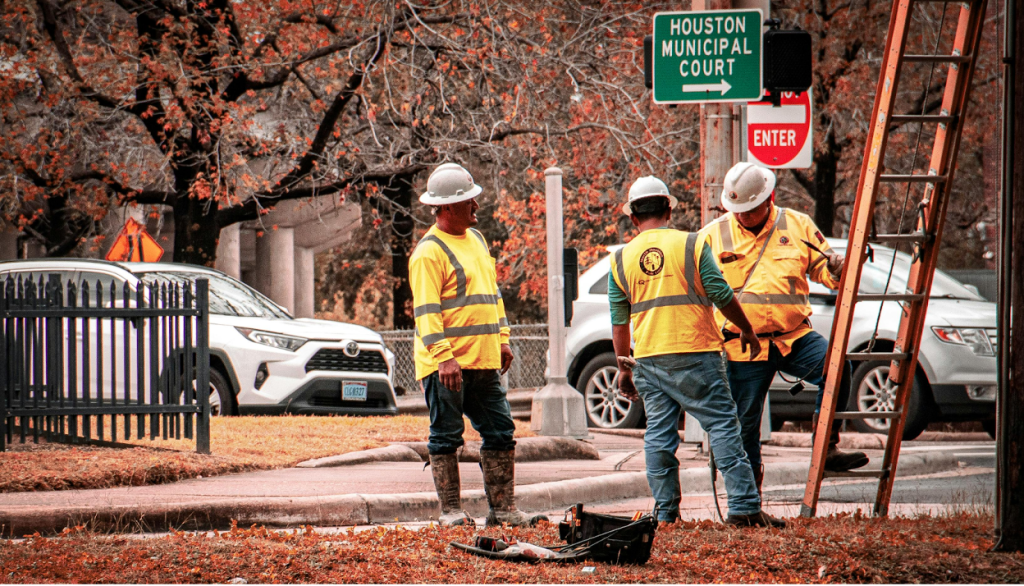- Customer Service 866-837-3065 Make A Payment (866) 558-3328
- Client Portal
- Consumer Support

Municipal debt collection involves recovering amounts owed to local governments from residents, businesses, and other entities. This includes property taxes, water and sewer fees, parking fines, licensing fees, and utility bills.
Unlike commercial debt collection, municipal agencies must balance aggressive recovery efforts with community relations, political considerations, and heightened public scrutiny.
The financial impact extends beyond missing dollars. When residents and businesses fail to pay what they owe, municipalities face difficult choices: raise taxes on compliant taxpayers, cut essential services, or defer critical infrastructure projects.
Professional debt collection strategies help municipalities recover these funds while maintaining the trust and goodwill essential for effective governance.
|
Southwest Recovery Services: Get Your Money Back 20+ Years Experience | Texas-Based | Contingency Only – You Pay When We Collect
Built for Commercial Collections:
The Southwest Recovery Difference: ✓ Contingency only – no upfront costs ✓ Veteran collectors with respectful omnichannel outreach ✓ Priority sectors: trucking, logistics, contractors, oil & gas ✓ Clear reporting on account status and outcomes Trust & Results You Need: Nationally recognized ethical collections agency with 12 offices across six states. Compliance-first approach with no threats or guarantees. |
Proven Municipal Debt Collection Strategies

Effective municipal debt collection requires strategic segmentation, clear policies, proactive communication, and technological support, all while maintaining strict legal compliance. The following strategies provide a proven framework for maximizing recovery rates while preserving positive community relationships.
Not all municipal debts are equal, and treating them identically wastes resources while reducing recovery rates. Municipalities should segment debtors based on amount owed, type of debt, payment history, and debtor profile (residential, commercial, or industrial). This segmentation enables customized collection strategies that match the situation.
Commercial accounts with substantial unpaid utility bills may warrant immediate, assertive follow-up with clear consequences. Residential taxpayers facing temporary hardship might respond better to payment plan offers. High-value accounts justify more intensive collection efforts, while smaller balances may be better handled through automated reminders.
Establishing clear credit control policies is crucial. These should define credit terms, payment reminder timelines, penalties for non-payment, and cutoff procedures for utility services. Your policies should specify when initial reminders are sent, how quickly unpaid accounts escalate, what penalties apply at each stage, and when service disconnections occur.
The longer a debt remains unaddressed, the lower your recovery probability. Effective collections begin with timely and consistent communication, including sending reminders soon after payment due dates and escalating contact efforts gradually through letters, phone calls, SMS, or emails.
Financial hardship is real, and inflexible collection approaches often fail when debtors genuinely cannot pay the full amount immediately. Offering flexible repayment plans or settlements enhances the likelihood of recovering debts, especially for customers facing economic difficulties.
Payment plans allow debtors to satisfy obligations over time through manageable installments. This approach recovers funds that might otherwise remain uncollectible while demonstrating municipal compassion and flexibility. Document all payment arrangements clearly, specifying installment amounts, payment schedule, and consequences if the debtor defaults.
Leveraging technology such as customer relationship management (CRM) systems and automated payment platforms helps streamline collections. Modern collection technology offers automated payment reminders, online payment portals, and predictive analytics that identify which accounts warrant intensive effort.
All municipal debt collection activities must adhere to relevant laws, such as the Fair Debt Collection Practices Act (FDCPA) and local statutory regulations. Municipal debt collection operates under intense scrutiny, and aggressive or unethical collection tactics generate negative publicity that damages public trust.

The process begins with extracting debtor data from billing and financial systems, with debtors prioritized based on delinquency duration, amount owed, and likelihood of recovery.
Export comprehensive debtor information, including account numbers, amounts owed, payment histories, and contact details. Prioritize accounts strategically, focusing intensive efforts on recently delinquent accounts with high recovery probability.
Municipalities send formal notices informing debtors of overdue amounts and urging prompt payment, with notices including details like the debt’s origin, amount due, payment options, and consequences of non-payment.
These initial notices should be clear, professional, and informative rather than threatening. Many accounts resolve at this stage simply because the debtor wasn’t aware of the delinquency.
If the debt remains unpaid, follow-up communications involve phone calls, text messages, or personal visits where feasible and appropriate. Phone contact often proves more effective than written notices, allowing real-time dialogue about payment obstacles and potential solutions.
Document every contact attempt meticulously, including dates, times, outcomes, and any promises made by the debtor.
For certain debts, such as utility bills, municipalities may implement service cut-offs as a last resort, with penalties or late fees further incentivizing timely payments. Service disconnections should only occur after appropriate notice and opportunity to resolve the debt.
Ensure your procedures comply with all applicable requirements, particularly regulations protecting vulnerable populations.
When internal efforts fail, cases are escalated to external agencies specializing in municipal collections like Southwest Recovery Services. Professional collection agencies bring specialized capabilities most municipalities lack internally, understanding complex collection laws and employing proven recovery strategies.
Professional agencies operate on a contingency basis, meaning no upfront costs; you pay only when they successfully recover funds. Typical contingency fees for collection agencies range from 10–25% of recovered amounts, with rates depending on account age, complexity, and volume.
In some cases, municipalities or their collection partners may initiate legal proceedings to recover debts, including obtaining judgments or arranging for wage garnishments, always respecting due process and legal safeguards.
Litigation represents the final collection tool when all other approaches have failed. Evaluate whether potential recovery justifies litigation costs, particularly for smaller balances.

Municipal debt recovery demands specialized expertise that balances persistent efforts with community sensitivity. At Southwest Recovery Services (SWRS), we bring over 20 years of experience serving government and municipal clients, understanding the unique challenges local governments face.
We operate exclusively on a contingency basis with zero upfront costs or monthly fees. You pay nothing unless we successfully recover your funds, eliminating financial risk while ensuring complete alignment of interests.
What sets us apart for municipal debt collection:
We serve municipalities with comprehensive B2B municipal debt recovery services designed specifically for government entities. Our secure client portal provides 24/7 access to account status, collection notes, and recovered payment tracking.
With offices across multiple states and a compliance-first approach, we maintain the geographic coverage and legal knowledge to pursue municipal debts nationwide.
Most professional municipal debt collection agencies operate on contingency fees ranging from 10–25% of recovered funds.
The exact percentage depends on factors including account age, debt size, complexity, and volume. Accounts under 90 days old typically qualify for lower rates, while older or more difficult cases may command higher percentages.
Essential items include all original invoices or billing statements showing dates and amounts owed, as well as contracts or service agreements that establish the debtor relationship.
You should also provide proof of service delivery, a complete payment history (including any partial payments), and detailed logs of your internal collection attempts. More complete documentation significantly improves recovery rates and accelerates the collection process.
Generally, municipalities should consider engaging professional collectors after 60–90 days of non-payment, assuming internal collection efforts have been exhausted.
Before involving an agency, the municipality should send payment reminders at 30 and 60 days past due, attempt direct contact, offer payment arrangements when appropriate, and issue a final notice.
Collection timelines vary significantly based on account age, debt amount, and debtor responsiveness. For relatively fresh accounts (under 90 days past due), professional agencies typically produce initial results within 30–45 days of placement.
Older accounts generally require 60–120 days for resolution. Cases requiring legal intervention may take six to 18 months, depending on court schedules and whether the debtor contests the judgment.
Southwest Recovery Services takes a compliance-first approach to municipal debt collection, adhering to the Fair Debt Collection Practices Act (FDCPA), state regulations, and local ordinances.
Our professionals receive specialized training in government-specific collection laws, and our technology platform includes safeguards that automatically track communication frequency and flag accounts requiring special handling. With more than 20 years of municipal experience, we use ethical, respectful methods that recover funds while protecting your community’s reputation and minimizing legal risk.
*Note: Recovery rates mentioned are for general reference only and not guaranteed. Actual results vary by account and industry. Contact Southwest Recovery Services for a customized quote.


We make it fast and easy to refer past due and delinquent accounts to our professional recovery agents. You decide the range on what you will accept on each case, and you ONLY pay a percentage of what we actually collect to resolve the case. Ready to get started, or want to learn more? Fill out this form and a dedicate account manager will call you to get started.